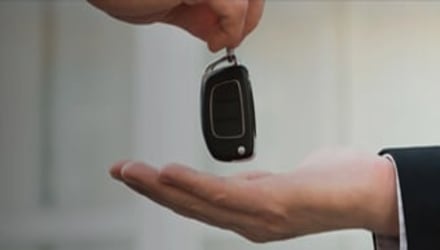
Employee Guide To Fuel Allowance
This guide will help you decide whether a fuel allowance will be of any real benefit to you by explaining the different kinds of allowances, the circumstances where you will and won’t be charged additional tax (i.e. benefit in kind or BIK tax), along with how to calculate tax payable.
As fuel reimbursement rates and fuel tax rates differ depending on whether you’re driving a car or a van, we’ve provided dedicated sections for each.
What is a fuel or mileage allowance?
A fuel or mileage allowance (often referred to simply as a ‘fuel allowance’) is when an employer pays for or reimburses an employee’s mileage driven or for their car or van fuel costs. The allowance can be offered alone or in conjunction with either a company car/van or a car allowance.
In practical terms, a fuel allowance is usually given in one of two ways:
- By paying the employee a pence-per-mile rate for mileage driven
- By providing the employee with a fuel card to use when purchasing fuel
NB: The benefits and taxation rules are the same for both employees and any company director being given a fuel or mileage allowance, therefore where the term ‘employee’ is used, this includes reference to any company director being given a fuel/mileage allowance.
Claiming For Business Mileage Or Fuel: Cars and Vans
Employees can reclaim business mileage regardless of whether they personally own the vehicle, their employer is leasing it, or they are leasing it themselves (either as a personal or business lease contract).
For the purposes of reclaiming fuel expenses (as well as for record keeping on your tax returns), as an employee you must keep and submit to your employer a detailed vehicle log (either using a paper log or an app). If you do a lot of mileage, it may make it easier to submit more frequent (e.g. weekly or monthly) mileage logs.
This log must provide a detailed, accurate record of all business trips (stating the date, start and end locations, journey purpose and start and end odometer readings).
Employees can also claim for other business journey costs such as congestion charges, parking fees and tolls. However, if using the HMRC’s AMAP rates to reclaim costs, employees cannot also claim for running costs such as servicing, repairs, MOT and wear and tear, as these are all included as part of the AMAP rates.
If an employee receives a company car or a cash allowance in lieu (which they use to privately lease a car) , they can reclaim fuel using the Government Advisory Fuel Rate ( AFR) which is reviewed quarterly.
If the employee uses their own car for company business ( and does not receive a cash allowance) they can reclaim their motoring costs for business travel using the Approved Mileage Allowance Payments (AMAPs)
If the employer uses AFRs to reimburse fuel costs for all business mileage, an employee who uses their own car for business can claim tax relief on the difference between the rate paid by their employer and AMAP rates.
If you'd like to speak with our friendly team about business vehicle leasing, simply call 0118 920 5130 or email us at: enquiries@selectcarleasing.co.uk
We've got business car leasing covered from every angle
If you're thinking about business car leasing, we have a collection of informative guides on all aspects of business leasing to make the process as simple as possible.
Guide
Company Cars
If you’re an employee being offered a company car or van, then congratulations because it can be a great practical benefit. However, before you say ‘yes’, make sure you take the time to understand what it means for you, your finances and responsibilities, so read on.
Guide
Car Allowance
If you’re an employee being offered a car allowance, you may be wondering ‘what’s involved?’ Well this guide explains everything you need to know, including your responsibilities, the benefits and consideration points, as well as up-to-date information on how a car allowance will impact you financially.
Guide
Company Cars Vs. Car Allowance
If you’re an employee being offered a car allowance, you may be wondering ‘what’s involved?’ Well this guide explains everything you need to know, including your responsibilities, the benefits and consideration points, as well as up-to-date information on how a car allowance will impact you financially.




















